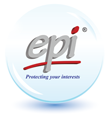What Makes A Good And Professional Standard
In every discipline there are many standards each with its own pros and cons. Some standards are popularized by big marketing budgets, though they may not be the best to protect your interest. It is a human trait where we are influenced by popular beliefs or vendors/salespeople when we do not have the full understanding to evaluate a product/service.
In this article, we will share with you what makes a good standard so you can ask the right questions. With the real facts you can avoid making the the wrong decisions that could setback your career and/or your company. Instead, you can be the person who makes the right decision based on true facts.
So, what makes a good standard?
1. It is developed following an accredited (ISO/ANSI) standard development process
First of all, you would want to make sure that the standard is transparent.
How it was developed? Was it done by one party only? Or was it developed by a committee of people in the industry, so it has proper technical vetting and public balloting?
2. The standard requirements and audit criteria are available for public download
Does the public have access to the requirements? There are some organisations promoting their standards, but they won't tell you all the requirements. They say the standard is outcome-based so they don’t have a checklist. This is often used as a statement and it is not appropriate.
If you want to follow a standard, you would want to know the requirements. For example, ISO is very good example. ISO gives you a document and you can read it yourself, and benchmark yourself as all the audit criteria are listed.
3. It should be practical and focused on business outcomes
Standards need to be practical and focused on business outcomes. What is the point of having 100 items checklist if they really don't matter? We want to make sure that we have the key things under control that really add value to the business, like minimizing risk, enhancing flexibility, enhancing efficiency and effectiveness.
4. It must respect local codes and regulations
Of course a standard should not contradict a local code or regulation because that will cause serious trouble and legal liability. We need to make sure that any standard we choose to implement, respects local codes.
5. It should be endorsed by the industry
It should be endorsed by the industry. In other words, the industry must be able to influence it. It should be an open standards and should be used by the industry.
6. Access to, and choice of, consultants and auditors
And finally, you need to have proper access to consultants and auditors who are specialists and certified on the standard. This give you some freedom of choice and it will be more cost effective.













